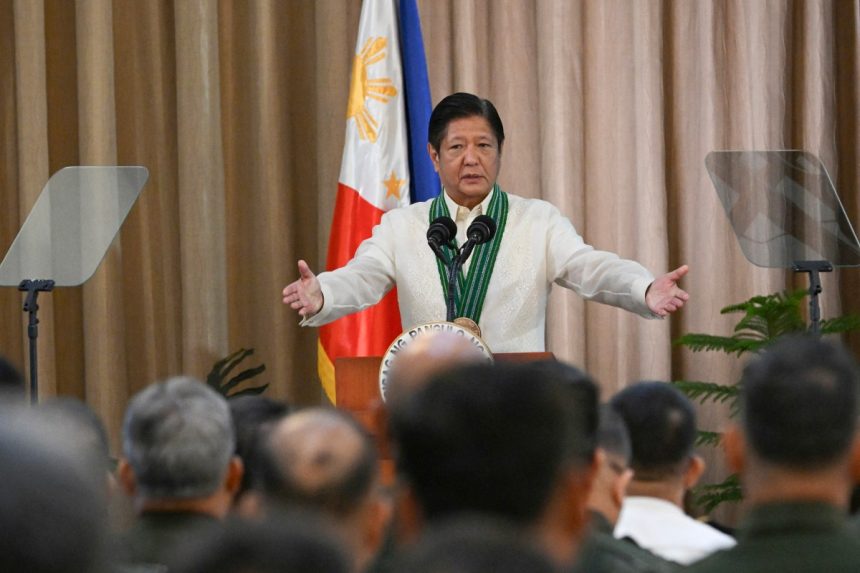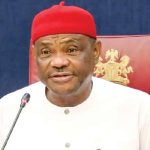Filipinos cast their votes on Monday in a pivotal midterm election that will shape half of the Senate, fill thousands of local government roles, and potentially determine the political fate of Vice President Sara Duterte, who faces impeachment.
With tensions running high, more than 160,000 national police officers have been mobilized across the country to secure polling precincts, accompany election workers, and man security checkpoints — a necessary precaution in a nation where fiercely contested local races frequently turn violent.
Yet, the election is as much about ballots as it is about battle lines — especially the escalating feud between Vice President Duterte and President Ferdinand Marcos Jr., a dramatic fallout between former allies that has consumed national discourse.
The conflict intensified after Duterte was impeached by the House of Representatives in February, followed closely by her father, ex-president Rodrigo Duterte, being apprehended and transferred to the International Criminal Court to answer for alleged atrocities committed during his bloody anti-drug campaign.
Twelve of the 24 Senate seats are up for grabs in this election, and the winners, alongside the 12 sitting senators, will serve as jurors in the vice president’s impeachment trial expected in July. A conviction could lead to Duterte’s permanent disqualification from public service.
Among the top contenders are a blend of entertainers and political veterans, including a popular TV personality, a well-known comedian, and a former Duterte ally who openly admits he may be the ICC’s next target. Not far behind is retired boxing legend and one-time presidential candidate Manny Pacquiao, teetering just outside the so-called “Magic 12.”
President Marcos has thrown his support behind at least seven Senate hopefuls, while four leading candidates — notably including his independent sister, Senator Imee Marcos — are aligned with the Duterte camp.
According to Cleve Arguelles, CEO of WR Numero Research, the stakes for the Duterte dynasty are existential.
“If Rodrigo loses all influence and Sara is barred from office, it’s not unreasonable to imagine their grip on Davao could also slip,” he said, referencing their political heartland in Mindanao.
And while Marcos is limited to a single presidential term, Duterte’s removal from the 2028 race could open up the field to a broader array of candidates — a scenario many in the establishment might welcome.
“If she’s out, then everyone has a shot,” Arguelles added.
Public Mood Shifts, but Not in Marcos’s Favor
Despite the mounting legal and political troubles facing the Dutertes, President Marcos has seen no real gain in public approval. In fact, his popularity has nosedived. A recent poll revealed a steep drop in his approval rating from 49% to just 25% in under three months.
“There’s a perception that midterms act as a referendum on the president’s leadership,” noted political analyst Dennis Coronacion of the University of Santo Tomas.
But Marcos, critics say, has little to show for his time in office. “There’s no standout policy achievement,” said Jean Franco of the University of the Philippines. “His administration’s narrative has been overshadowed by the Duterte drama.”
Attempts to spotlight China’s encroachment in the South China Sea have failed to resonate deeply with voters, who are far more concerned with the rising cost of living and unemployment. Despite widespread anti-China sentiment, surveys suggest these issues are not top voting priorities.
A Fragile Election Landscape
In Metro Manila, voters are expected to turn out in droves at malls repurposed as polling stations. However, in remote provinces, the threat of violence remains a grim backdrop to the democratic exercise.
The country has a long history of electoral violence, and this year has been no exception. In Mindanao — the Dutertes’ stronghold — past elections have seen deadly attacks. In 2022, three security personnel were gunned down at a polling site just hours after voting began, while a separate grenade attack injured nine.
In a sign of ongoing concern, the Commission on Elections (Comelec) recently removed senior police officials from two southern towns, blaming them for failing to protect an election officer who was later assassinated.
Between January 12 and May 7, the electoral body has logged 81 cases of politically motivated violence, with police confirming 16 deaths. While Comelec insists the numbers are lower than in previous years, the risk remains palpable.
Looking Ahead: Power Shifts on the Horizon
Regardless of how the midterm vote shakes out, political analysts believe the second half of Marcos’s presidency will mark a decline in his influence.
“Presidential power naturally diminishes after the midterms,” said Alicor Panao, a political scientist at the University of the Philippines. “Once lawmakers and local officials start planning for the 2028 elections, the president becomes less relevant. That’s just the nature of our political cycle.”
As the nation awaits election results, one thing is clear — the battle lines for 2028 are already being drawn, and what happens this week may well decide who gets to fight that battle.










